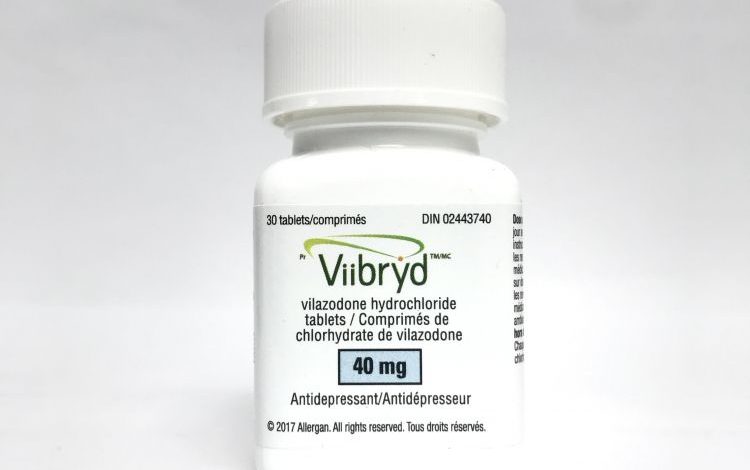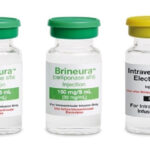Vilazodone (Viibryd): Uses, Dosage, Side Effects, Reviews, Cost

What Is Vilazodone (Viibryd) And What Does It Treat?
Vilazodone (Viibryd) is an antidepressant medication that belongs to a class of medications called selective serotonin reuptake inhibitors (SSRIs) and is also a 5HT1A receptor partial agonist. It works by increasing the amount of serotonin, a natural substance in the brain that helps maintain mental balance.
Vilazodone (Viibryd) is used to treat depression. Depression is classified as a mood disorder. It may be described as feelings of sadness, loss, or anger that interfere with a person’s everyday activities. It’s also fairly common. Data from the Centers for Disease Control and Prevention estimates that 18.5 percent of American adults had symptoms of depression in any given 2-week period in 2019.
What Is The Most Important Information I Should Know About Vilazodone (Viibryd)?
Do not stop taking vilazodone, even when you feel better. With input from you, your health care provider will assess how long you will need to take the medicine.
Missing doses of vilazodone may increase your risk for relapse in your symptoms.
Stopping vilazodone abruptly may result in one or more of the following withdrawal symptoms: irritability, nausea, feeling dizzy, vomiting, nightmares, headache, and/or paresthesias (prickling, tingling sensation on the skin).
Depression is also a part of bipolar illness. People with bipolar disorder who take antidepressants may be at risk for “switching” from depression into mania. Symptoms of mania include “high” or irritable mood, very high self-esteem, decreased need for sleep, pressure to keep talking, racing thoughts, being easily distracted, frequently involved in activities with a large risk for bad consequences (for example, excessive buying sprees).
Medical attention should be sought if serotonin syndrome is suspected. Please refer to serious side effects for signs/symptoms.
What Should I Discuss With My Health Care Provider Before Taking Vilazodone (Viibryd)?
• Symptoms of your condition that bother you the most
• If you have thoughts of suicide or harming yourself
• Medications you have taken in the past for your condition, whether they were effective or caused any adverse effects
• If you experience side effects from your medications, discuss them with your provider. Some side effects may pass with time, but others may require changes in the medication.
• Any other psychiatric or medical problems you have, including a history of bipolar disorder
• All other medications you are currently taking (including over the counter products, herbal and nutritional supplements) and any medication allergies you have
• Other non-medication treatments you are receiving, such as talk therapy or substance abuse treatment. Your provider can explain how these different treatments work with the medication.
• If you are pregnant, plan to become pregnant, or are breastfeeding
• If you drink alcohol or use drugs
How Should I Take Vilazodone (Viibryd)?
Vilazodone (Viibryd) is usually taken one time per day with food or milk.
Typically, patients begin at a low dose of medicine and the dose is increased slowly over several weeks.
The dose usually ranges from 20 mg to 40 mg. Only your health care provider can determine the correct dose for you.
Consider using a calendar, pillbox, alarm clock, or cell phone alert to help you remember to take your medication. You may also ask a family member or friend to remind you or check in with you to be sure you are taking your medication.
What Happens If I Miss A Dose Of Vilazodone (Viibryd)?
If you miss a dose of vilazodone, take it as soon as you remember, unless it is closer to the time of your next dose. Discuss this with your health care provider. Do not double your next dose or take more than what is prescribed.
What Should I Avoid While Taking Vilazodone (Viibryd)?
Avoid drinking alcohol or using illegal drugs while you are taking antidepressant medications. They may decrease the benefits (e.g., worsen your condition) and increase adverse effects (e.g., sedation) of the medication.
What Happens If I Overdose With Vilazodone (Viibryd)?
If an overdose occurs, call your doctor or 911. You may need urgent medical care. You may also contact the poison control center at 1-800-222-1222. A specific treatment to reverse the effects of vilazodone does not exist.
How Long Does It Take For Vilazodone (Viibryd) To Work?
Sleep, energy, or appetite may show some improvement within the first 1-2 weeks. Improvement in these physical symptoms can be an important early signal that the medication is working. Depressed mood and lack of interest in activities may need up to 6-8 weeks to fully improve.
Can a pregnant woman take Vilazodone (Viibryd)?
If you are planning on becoming pregnant, notify your health care provider to best manage your medications. People living with MDD who wish to become pregnant face important decisions. Untreated MDD has risks to the fetus, as well as the mother. It is important to discuss the risks and benefits of treatment with your doctor and caregivers.
Can a breastfeeding woman take Vilazodone (Viibryd)?
Caution is advised with breastfeeding since vilazodone does pass into breast milk. Because there is no published experience with vilazodone during breastfeeding, an alternate drug may be preferred, especially while nursing a newborn or preterm infant.
What Are The Possible Side Effects Of Vilazodone (Viibryd)?
Vilazodone (Viibryd) may cause side effects. Tell your doctor if any of these symptoms are severe or do not go away:
• changes in sexual desire or ability
• dizziness
• dry mouth
• gas
• heartburn
• increased appetite
• joint pain
• pain, burning or tingling in the hands or feet
• tiredness
• uncontrollable shaking of a part of the body
• unusual dreams
Some side effects can be serious. If you experience any of these symptoms, call your doctor immediately:
• diarrhea
• difficulty breathing
• difficulty concentrating
• fainting
• fever, sweating, confusion, fast or irregular heartbeat, and severe muscle stiffness
• hallucinations (seeing things or hearing voices that do not exist)
• headache
• hives
• increased falls
• loss of consciousness
• memory problems
• nausea
• nosebleeds
• problems with coordination
• rash
• seizures
• small red or purple dots on the skin
• swelling
• unusual bleeding or bruising
• vomiting
• weakness
Vilazodone may cause other side effects. Call your doctor if you have any unusual problems while taking this medication.
Is Vilazodone (Viibryd) a safe medication?
This medication is safe when used as prescribed. However, Vilazodone (Viibryd) can cause several side effects including Night sweats, decreased appetite, migraine headaches, sleepiness, tremor, blurry vision, dry eyes, abnormal dreams, agitation, restlessness, increased urination, sexual dysfunction, angle-closure glaucoma (symptoms of angle-closure glaucoma may include eye pain, changes in vision, swelling or redness in or around the eye), Serotonin syndrome (symptoms may include shivering, diarrhea, confusion, severe muscle tightness, fever, seizures, and death), palpitations, irregular heartbeat
Vilazodone (Viibryd) may also increase the risk of bleeding events. Combined use of aspirin, nonsteroidal anti-inflammatory drugs (e.g., ibuprofen, naproxen), warfarin, and other anti-coagulants may increase this risk. This may include gums that bleed more easily, nose bleed, or gastrointestinal bleeding. Some cases have been life-threatening.
Are There Any Risks For Taking Vilazodone (Viibryd) For Long Periods Of Time?
To date, there are no known problems associated with the long-term use of vilazodone. It is a safe and effective medication when used as directed.
What Other Medications May Interact With Vilazodone (Viibryd)?
Vilazodone (Viibryd) should not be taken with or within 2 weeks of taking monoamine oxidase inhibitors (MAOIs). These include phenelzine (Nardil®), tranylcypromine (Parnate®), isocarboxazid (Marplan®), rasagiline (Azalect®) and selegiline (Emsam®).
Although rare, there is an increased risk of serotonin syndrome when vilazodone is used with other medications that increase serotonin, such as other antidepressants, migraine medications called “triptans” (e.g., Imitrex®), some pain medications (e.g., tramadol (Ultram®), and the antibiotic linezolid (Zyvox®).
The following medications may increase the levels and effects of vilazodone requiring a decreased dose of vilazodone:
• Antibiotics, such as clarithromycin (Biaxin®), erythromycin (Ery-Tab®), and telithromycin (Ketek®)
• Antifungals, such as fluconazole (Diflucan®), ketoconazole (Nizoral®), and itraconazole (Sporanox®)
• Blood pressure medications, such as verapamil (Calan®, Covera-HS®, Isoptin SR®) and diltiazem (Cardizem®, Tiazac®)
• HIV medications such as protease inhibitors: indinavir (Crixivan®), ritonavir (Norvir®), saquinavir (Fortovase®, Invirase®), and lopinavir/ritonavir (Kaletra®)
• Nefazodone
The following medications may decrease the levels and effects of vilazodone requiring an increased dose of vilazodone: carbamazepine (Tegretol®), oxcarbazepine (Trileptal®), rifampin (Rifadin®), phenytoin (Dilantin®), and phenobarbital.
How much does Vilazodone (Viibryd) cost
The price for Viibryd oral kit – is around $339 for a supply of 30 kits, depending on the pharmacy you visit. Prices are for cash-paying customers only and are not valid with insurance plans.





